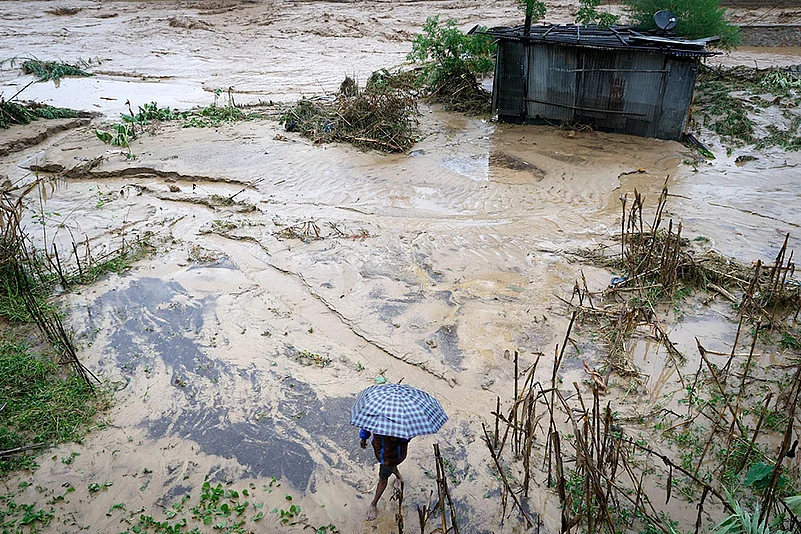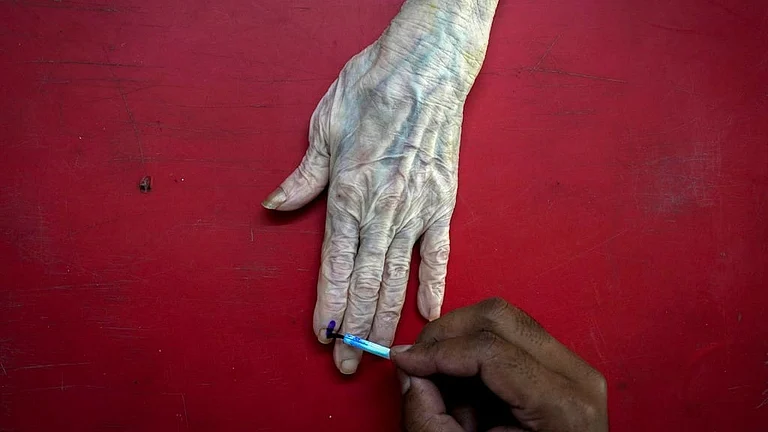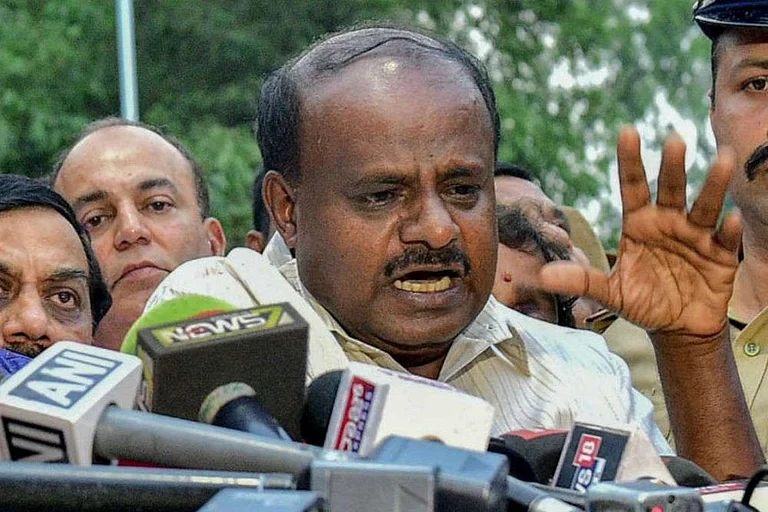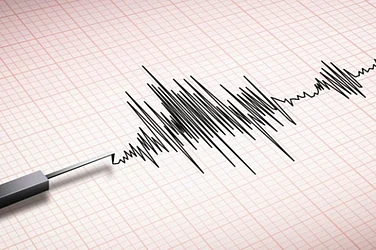
Bhima river overflow affects 6,664 people sheltered in 53 relief centres across Kalaburagi.
3.5 lakh cusecs of water released from Maharashtra reservoirs causes extreme flooding levels
National Highway 50 is completely shut; 27 bridges are submerged across the affected districts.
CM Siddaramaiah to visit on September 30; over 8,000 people evacuated region-wide
Karnataka floods have devastated multiple districts in North Karnataka as the Bhima river continues to overflow following heavy rainfall and massive water discharge from Maharashtra's reservoirs on Monday, September 29, 2025. Flooding in Kalaburagi remains severe with 53 relief centres sheltering 6,664 people, including 3,050 men, 2,270 women, and 1,344 children across affected taluks.
Current Flood Situation
Karnataka weather today shows continued rainfall across the flood-hit regions with orange alerts remaining in effect. The Karnataka State Natural Disaster Monitoring Centre (KSNDMC) reports that the Bhima river is flowing at extreme flooding levels in Yadgir, Kalaburagi, and Bidar districts.
Bhima River Floods and Damage Assessment
Bhima river floods damage has reached catastrophic proportions with 3.5 lakh cusecs of water released from Maharashtra's Ujani, Sina, and Veer reservoirs. The Bhima River overflow has caused:
Infrastructure Damage:
27 bridges submerged across the Kalaburagi district
179.60 km of roads damaged in Bidar
420 school rooms, 246 Anganwadi buildings affected
246 electricity poles and 36 transformers were damaged
Agricultural Losses:
Hundreds of acres of paddy, cotton, sugarcane, and grape crops are submerged.
40 bullocks drowned in the Jettur village cowshed, flooding
22 small livestock (sheep and goats) were killed due to wall collapses
Karnataka Floods: District-wise Impact Analysis
Kalaburagi flood update shows the district as the worst affected, with villages in Afzalpur, Jewargi, Chittapur, and Sedam taluks severely impacted. The Kattisangavi bridge near Jewargi remains completely submerged, causing total shutdown of National Highway 50 between Bidar and Srirangapatna.
Floods in North Karnataka have affected multiple districts:
Bidar District:
Inchur bridge submerged, cutting connectivity to Maharashtra
Three houses collapsed in Hulsur taluk.
266 villagers are accommodated in relief centres
Yadgir District:
1,160 people evacuated to safety with 5 relief centres operational
104 houses damaged since September 20
122% excess rainfall recorded from September 22-28
Raichur District:
15 houses collapsed in Maski as the Bhima waters merged with the Krishna River
Gurjapur bridge-cum-barrage submerged
Government Response and Relief Operations
Karnataka rains have prompted comprehensive government action. Chief Minister Siddaramaiah will visit Kalaburagi district on September 30 to assess flood damage and review relief measures. Revenue Minister Krishna Byre Gowda and Chief Secretary Shalini Rajneesh have been directed to closely monitor the situation.
Emergency Measures Include:
NDRF teams deployed in Wadgi and SDRF teams in Mannur
36 villages severely affected with relief operations underway
Over 8,000 people relocated to safety across the affected districts.
Continuous rescue operations using boats in inaccessible areas
Weather Forecast and Extended Outlook
Karnataka rain forecast indicates continued challenging conditions. Heavy to very heavy rainfall is expected over the catchment areas of major rivers in the coming days. The KSNDMC warns that flooding is likely to persist as:
The Bhima river continues flowing at extreme flood levels.
Additional water releases possible from Maharashtra reservoirs
Monsoon activity remains active over the North Karnataka region
Karnataka weather update shows the region has received significantly above-normal rainfall:
August: 66% excess at 195mm (normal 118mm)
September: 32% above normal at 171mm recorded up to September 28
Kalyana Karnataka flood situation represents one of the worst flooding events in recent years, with authorities urging residents in low-lying areas to remain vigilant and follow evacuation orders. The combination of local heavy rainfall and upstream water releases has created unprecedented flood conditions across the Bhima river basin.





























